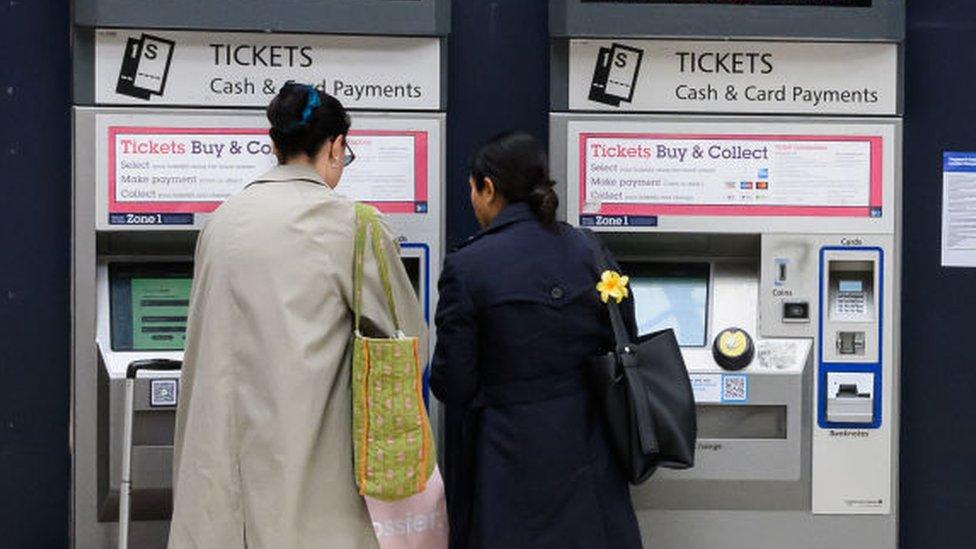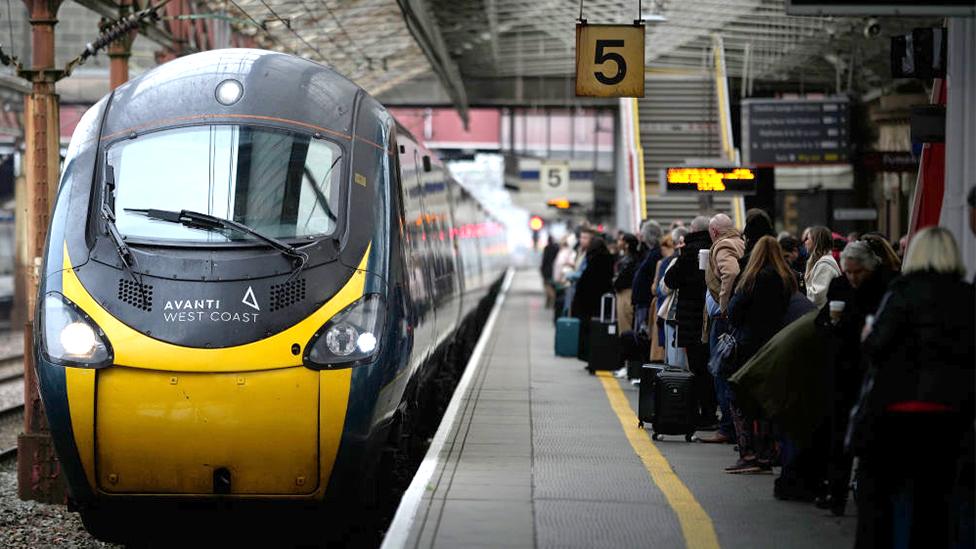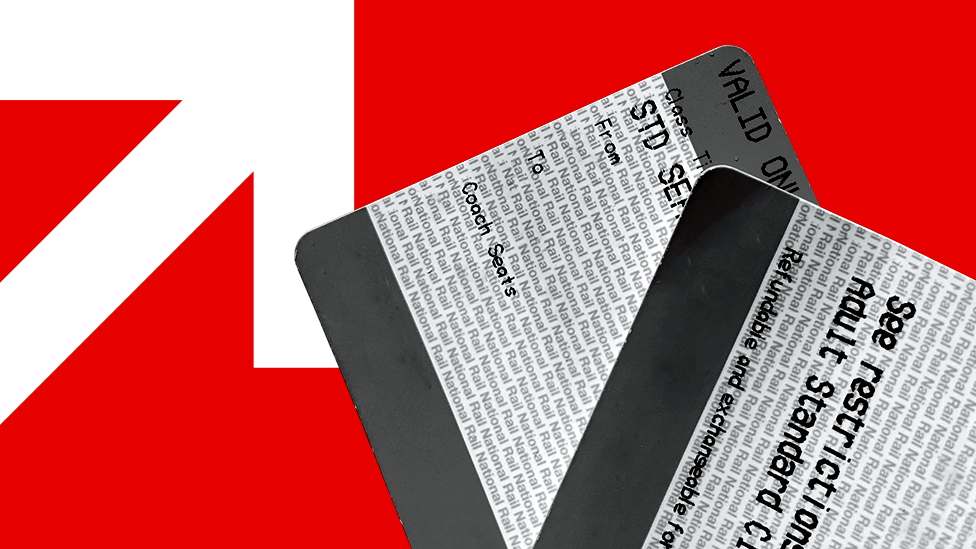Rail fares in England to rise below 9% in 2024
- Published
- comments

Regulated train fares in England will again rise below the rate of inflation next year, the government has said.
The move is meant to help people with the soaring cost of living and follows a similar intervention in 2023.
Any rises will once more be delayed until March 2024, rather than kicking in in January as was normal pre-Covid.
However, one campaign group said fares should be frozen "in recognition of the burden high fares place on rail passengers".
Regulated fares cover about 45% of fares, including season tickets on most commuter journeys, some off-peak return tickets on long-distance journeys and anytime tickets around major cities.
Before the pandemic, they were increased in January each year, based on the Retail Prices Index (RPI) measure of inflation from the previous July. The normal formula is RPI plus 1%.
RPI in July was 9%, the Office for National Statistics said on Wednesday.
It is not known what next year's increase will be, but this year the government increased national rail fares by 5.9%, which was well below July 2022's RPI figure of 12.3%.
That increase was still the largest since 2012, according to regulator the Office of Rail and Road.
At the time Labour called the rise a "sick joke for millions reliant on crumbling services".
The government's latest intervention comes as UK inflation - the rate at which prices rise - remains high although is starting to ease.
Millions are still struggling with higher prices for food and services at time when interest rates are also rising to tackle the problem, making it more expensive to borrow money.
A Department for Transport (DfT) spokesman said the government would "continue to protect passengers from cost of living pressures".
'Patchy performance'
Anthony Smith, chief executive of watchdog Transport Focus, which represents passengers, said: "Nobody likes their fare going up, but after a year where many journeys have been blighted by disruption due to industrial action and patchy performance, passengers will be relieved to hear that fares will be capped below the Retail Prices Index and any increases will be delayed until March next year."
But Paul Tuohy, boss of pressure group Campaign for Better Transport, said the government should "freeze rail fares - as they have done with fuel duty - until the long-promised ticketing reform takes place".
Liberal Democrat leader Sir Ed Davey also called for an immediate rail fare freeze, adding: "We need real action to tackle the cost of living crisis."
The DfT promised in 2021 to simplify the entire ticketing system, reducing the vast number of fares available which can make it difficult for travellers to decide which is best for them.
Reforms so far have included a trial of "single leg pricing" and the introduction of flexi-season tickets. But the pressure group says overhauling the ticketing system has yet to take place.
Since last summer rail passengers have faced disruption due to a wave of strikes, with further industrial action planned on Saturday 26 August and Saturday 2 September.
Workers are demanding pay rises that reflect the soaring cost of living, while also trying to stop job cuts and changes to working conditions.
The Scottish and Welsh governments have not announced their policies regarding rail fare rises next year.
Related topics
- Published9 May 2024

- Published22 December 2022

- Published3 March 2024
